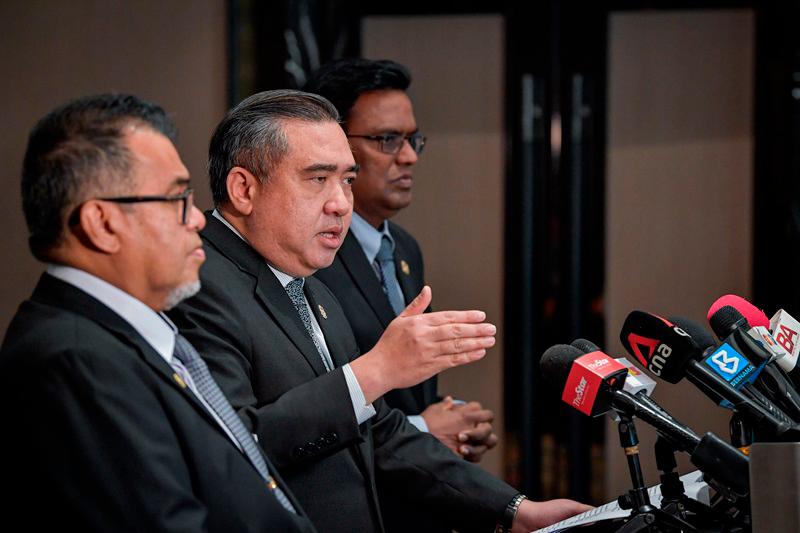KUALA LUMPUR: The 30th ASEAN Transport Ministers’ Meeting (ATM) which ended today has adopted significant initiatives aimed at enhancing connectivity, sustainability, and innovation in the ASEAN transport sector, said Transport Minister Anthony Loke Siew Fook.
He said the initiatives among others are the adoption of Protocol 5 on Own Stopover Rights between Points within the Territory of any other ASEAN Member State, ASEAN Guidelines on Light Electric Vehicles (LEVs) and ASEAN Guidelines on Urban Freight Transport, Guidelines on Port Sector Public-Private Partnership (PPP).
“In the aviation front, the signing of Protocol 5 on Own Stopover Rights between Points within the Territory of any other ASEAN Member State will allow airlines from ASEAN Member States to operate flights with stopover rights within other ASEAN countries, boosting regional air connectivity.
“It facilitates greater operational flexibility for carriers, promotes tourism, and enhances trade by providing more seamless and convenient air travel options across the region,” he said in a press conference at the end of the meeting here today.
Furthermore, he said the adoption of the ASEAN New Zealand-Air Service Agreement and its Protocol 1 marked a significant step in strengthening aviation ties between ASEAN and New Zealand.
Loke said as ASEAN’s main focus is on sustainability, the adoption of ASEAN Guidelines on Light Electric Vehicles (LEVs) aims to support the adoption of light electric vehicles (such as electric scooters, bikes, and small cars) within the ASEAN region.
“Moreover, the adoption of ASEAN Guidelines on Urban Freight Transport focuses on improving the efficiency of freight transport in urban areas while minimising environmental impact.
“The guidelines offer strategies for better logistics management, optimisation of delivery routes, and promotion of low-emission vehicles, contributing to greener cities and reduced traffic congestion,” he said.
Additionally, he said the adoption of the ASEAN Guidelines on Port Sector Public-Private Partnership (PPP), will provide a framework to encourage investment from the private sector in developing and managing port infrastructure.
On improving road safety among ASEAN region member countries, Loke said the 30th ATM agreed to issue a Joint Ministerial Statement on Kuala Lumpur 2024 Road Safety Framework as it aims to effectively enhance road safety across ASEAN by implementing strategic initiatives that align with international standards and best practices.
Meanwhile, Loke said with dialogue partners, namely, China, Japan, and the Republic of Korea, ASEAN is committed to advancing negotiations and finalizing Air Services Agreements (ASAs) with these nations.
He said these agreements are pivotal for strengthening regional and inter-regional connectivity by enabling greater market access, promoting air transport liberalisation, and fostering closer economic and cultural ties.
“The ASEAN Transport Ministers also took the opportunity to engage in discussions with key Development Partners, including the World Bank, Asian Development Bank (ADB), International Transport Forum (ITF), UNESCAP, and the Asian Infrastructure Investment Bank (AIIB).
“These meetings served as a platform to explore potential partnerships and avenues for support from these esteemed organisations in advancing the ASEAN transport sector,” he said.
According to Loke, the outcomes of the 30th ASEAN Transport Ministers Meeting and the 58th Senior Transport Officials Meeting underscored ASEAN’s commitment to fostering an inclusive and sustainable transport ecosystem across the region.
“With a forward-looking approach, ASEAN has laid a robust foundation for transforming its transport sector to meet the challenges of the megatrends,” he said.









